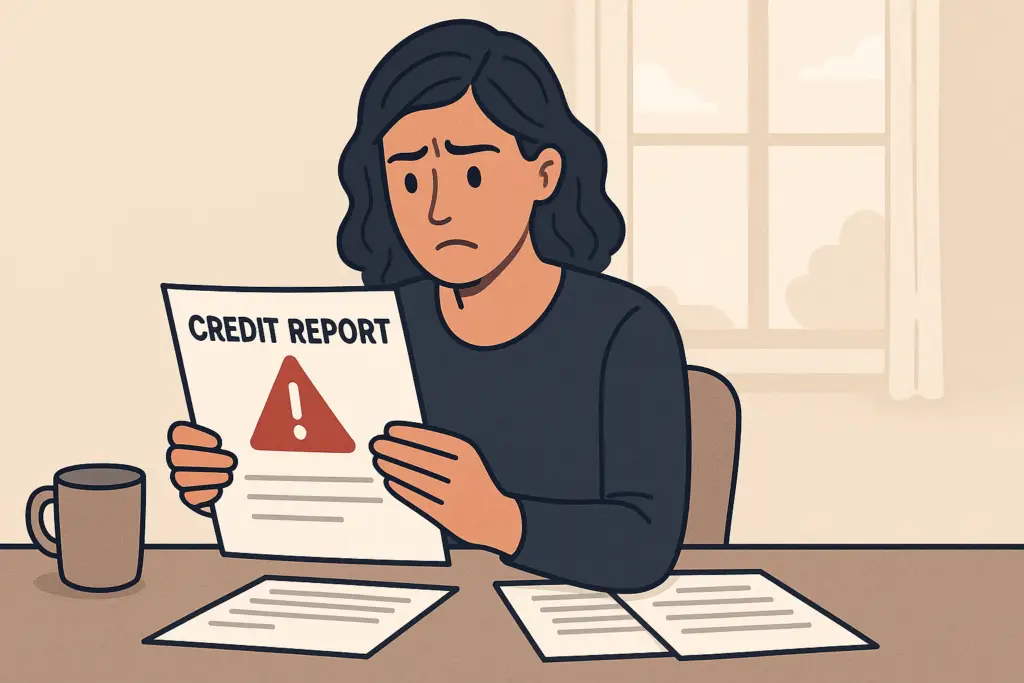April 24, 2025

Discovering that your ex’s credit card appears on your credit report can be both surprising and concerning. Whether it’s due to a past authorized user status, a joint account, or unauthorized activity, it’s essential to understand your rights and the steps you can take to address the situation.
Several scenarios might explain this occurrence:
If you identify an account on your credit report that you believe shouldn’t be there, consider the following steps:
Under the Fair Credit Reporting Act (FCRA), you have the right to dispute inaccurate or unauthorized information on your credit report. You can file disputes with the major credit bureaus—Equifax, Experian, and TransUnion—to request the removal of such accounts. Consumer Advice
If you suspect that your ex opened accounts in your name without permission, it’s crucial to report this as identity theft. You can file a report with the Federal Trade Commission (FTC) at IdentityTheft.gov and consider filing a police report to have official documentation of the incident. IdentityTheft.gov
If the credit bureaus or lenders fail to rectify the issue, seeking legal assistance may be the appropriate next step. A consumer protection attorney can guide you through the process and, if necessary, take legal action under the FCRA to correct your credit report and potentially recover damages.
Can I be held responsible for my ex’s debt?
Only if you co-signed or jointly opened the account. Otherwise, you shouldn’t be held liable. However, you may need to take action to remove the account from your credit report. Equifax
What if my ex won’t admit to opening the account?
Even without their admission, official documentation like police reports, FTC identity theft reports, and bank records can support your case in disputing the account. If submitting a well-documented dispute to the credit reporting agency doesn’t resolve your issue, you will likely need to file suit against the credit reporting agency and the “data furnisher” (the bank or other company providing the data about your account to the credit reporting agency) in order to get the issue resolved favorably.
How long will it take to fix my credit?
The timeframe varies, but with prompt action and proper documentation, you can often see improvements within a few months. Persistent follow-up may be necessary. If it becomes necessary to sue the credit reporting agency and/or the data furnisher, it will take longer. Many credit reporting litigations are resolved in the 9-18 month range, often via settlement.
Final Thoughts
If your ex’s credit card is impacting your credit report, it’s essential to address the issue promptly. The longer inaccurate information remains, the more potential damage it can cause to your credit score. Begin by reviewing your credit reports, gathering relevant documents, and considering professional assistance to ensure your credit history accurately reflects your financial behavior.
At Schlanger Law Group, our practice focuses on helping individuals nationwide address credit reporting errors and unauthorized charges. Contact us today for a free consultation and take the first step toward restoring your credit and peace of mind.

By Schlanger Law Group Staff
Schlanger Law Group In The Media




Reach out to Schlanger Law Group for a free consultation, and let’s discuss your case with no upfront fees.
The information on this website is for general information purposes only. Nothing on this site should be taken as legal advice for any individual case or situation.
This information is not intended to create, and receipt or viewing does not constitute, an attorney-client relationship.
ATTORNEY ADVERTISEMENT | Past Results Do Not Guarantee Similar Outcomes in the Future
This site is protected by reCAPTCHA and the Google Privacy Policy and Terms of Service apply.
WEBSITE BY: VISIONTRACTION